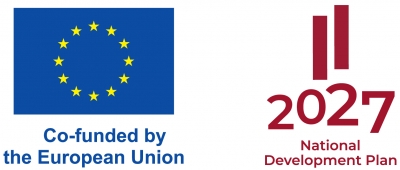In the interest of ensuring the well-being, healthy development and self-realisation of children in Latvia, on 12 December the government approved a draft regulation providing for the establishment of a system of preventive support services and training of specialists, promoting successful social integration of children exposed to various development risks and their families.
The data on the activities related to children’s development process show that in the first decade of the 21st century, around 20 % of children in the world and also in Latvia faced development risks, the negative impact of which requires a professional approach by specialists from different fields and a coordinated, unified support system. Insufficient provision of preventive support services can hinder the healthy development of a child from an early age, thereby reducing the prognosis of quality of his or her education and quality of life for the coming years. Access to professional support services is becoming increasingly important to promote children’s emotional, cognitive, social development, adaptive behaviour and cooperation skills.
Significant changes nowadays occur in almost every sector, affecting almost every family of Latvia and posing new challenges for children’s development. These include the social stratification of families, the parents' busy work schedule, and the lack of involvement in children’s emotional development, as well as the family’s inability to adapt to social conditions that may lead to marriage breakdown or family dysfunction, the risks posed by the Internet environment, difficulties in the socialisation of children, etc. All these factors can result in cognitive, behavioural or psycho-emotional disorders, leading to complications for children as they grow.
The current system supporting the children’s development needs in Latvia is fragmented and incomplete. Latvia is characterised by significant regional differences in the quality and accessibility of support services. Currently, support is mainly provided in crisis situations (the so-called 'fire extinguishing strategy') rather than pre-emptively addressing risks before they are exacerbated and cause serious problems. As a result, the children’s development risks and disorders are often identified too late, which, in turn, poses risks for the child’s future development, education, inclusion and limits the child’s future opportunities in life.
It is therefore necessary to systematically develop preventive support services to ensure that early prevention and intervention services are implemented into integrated and effective interoperability of the educational and social area.
Through the integration of the Cross-Sectoral Coordination Centre at the beginning of this year, the State Chancellery continues the active work already launched in 2018 together with line ministries with a view to build an early preventive support system. When planning and organising targeted expansion of the range of prevention and early intervention services, it is important to ensure the availability of early support services for children with development risks, as well as to develop clear cross-sectoral cooperation algorithms, how a family with a child can receive the necessary support in the areas of health, education and social rehabilitation.
A new draft regulation of the Cabinet of Ministers has been prepared to address these issues. The draft regulation provides for the development and implementation of an Early Preventive Support Service system for children under the age of 18.
The main objective of the project is to ensure:
- effective evidence-based prevention and early intervention services for children and their parents;
- cooperation between professionals in the health, education and social area in organising multidisciplinary team work and providing support for children;
- training of specialists (educators, speech therapists, ergo therapists, psychologists, special educators, etc.) in order to expand the range of support services available to children.
The total funding of the activity amounts to EUR 41.7 million, of which the funding of the European Social Fund Plus – EUR 35.5 million and the state budget co-financing – EUR 6.2 million. This funding is intended to provide the early preventive support (prevention and early intervention) services to 14150 children with development challenges or risks by 31 December 2029, contributing to positive future development dynamics. Training and methodological support will be provided to 836 national, regional and local institutions, including educational institutions, medical institutions including primary health care providers, education administrations, social services and the Orphan’s Court.
These activities will help to achieve the main goal of ensuring effective early preventive support for children throughout Latvia, strengthening their healthy development and social integration.
This project will be implemented within the framework of the European Union’s cohesion policy programme 2021-2027, Activity 4.3.6.7 'Developing a Cross-Sectoral Cooperation and Support System for the Healthy Development and Successful Self-realisation of Children'. It is planned to achieve a significant progress through this measure in promoting children’s development and self-realisation, thus strengthening the social cohesion and sustainable development of the society in Latvia.




